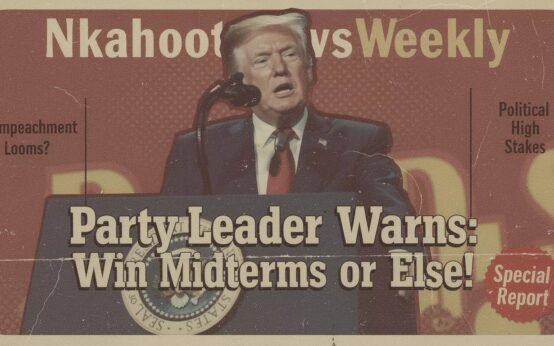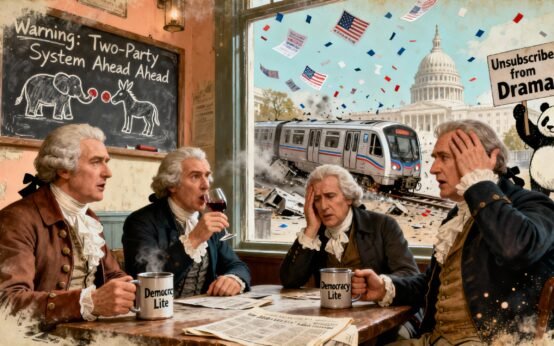🧠 Who Are These People and Why Should You Care?
Let’s be honest—“amendment auditor” sounds like a job invented by someone who lost a bet in a civics class. But these folks are the real MVPs of local governance. They’re the ones who catch the clause that turns a $10,000 grant into a $10 million disaster. They’re the ones who say, “Wait, this bill gives the parks department the power to issue subpoenas?”
🔍 What Are They Finding?
1. Project 2025: Bureaucracy, But Make It Spicy
According to FactCheck.org, Project 2025 is a conservative blueprint tonment. Think of it as Marie Kondo-ing the Constitution—except instead of asking “Does this spark joy?” they’re asking “Can we fire everyone and replace them with interns from Liberty University?”
Local amendment auditors are flagging how this could trickle down to municipal operations:
- Federal funding tied to compliance with new ideological benchmarks
- Local agencies pressured to adopt federal hiring practices that prioritize loyalty over expertise
- Increased risk of politicized audits and reduced oversight
2. Medicaid Misinformation: The Budget Cut That Wasn’t
Another recent finding involves a viral claim that illegal immigrants are draining Medicaid. Turns out, that’s not quite true. A House-passed bill would reduce federal funding to states offering state-funded health insurance to undocumented residents, but it doesn’t touch Medicaid directly (FactCheck.org).
ow this misinformation affects local policy debates. Town halls are turning into WWE matches over budget allocations that aren’t even real. One auditor in Maryland reportedly had to explain to a council member that “Medicaid” isn’t a type of salsa.
🧨 Why This Matters in 2025
We’re living in a time when:
- AI can write legislation faster than Congress can read it
- Political influencers are livestreaming committee hearings with TikTok filters
- The phrase “executive order” is trending more often than “Taylor Swift”
In this chaos, amendment auditors are the last bastion of sanity. They’re the ones making sure your town doesn’t accidentally outlaw birthday parties or legalize goat ownership in downtown Germantown.
🧪 The Comedy of Bureaucracy: Real Findings, Real Laughs
Let’s take a moment to appreciate the absurdity of what auditors have uncovered:
- A city ordinance that banned “unlicensed parades” accidentally included birthday parties
- A zoning amendment meant to encourage green spaces ended up legalizing goat ownership in downtown areas
- One auditor found a clause in a local bill that redirected school lunch funds to “community morale initiatives,” which turned out to be a karaoke machine for city hall
These aren’t jokes. They’re real findings. And they’re hilarious—until you realize they’re also real policy.
🧭 Perspectives: Not Just for the Nerds
Some critics argue that amendment auditors are just glorified bureaucrats with a magnifying glass. But let’s flip the script:
- Civic activists see them as watchdogs who keep democracy honest
- Local politicians (the smart ones) rely on them to avoid embarrassing legislative blunders
- Taxpayers benefit when auditors catch wasteful spending before it becomes a scandal
Even comedians love them—because nothing says “material for your next set” like a city accidentally outlawing lemonade stands.
📚 Sources and Fact Checks
- FactCheck.org on Project 202ttps://www.factcheck.org/2024/07/false-claim-about-medicaidgal-immigrants/FactCheck.org on Medicaid misinformation
- Local government transparency reports (available via municipal websites)
- Public hearings and council minutes
🧠 Final Thoughts: Why You Should Support Your Local Amendment Auditor
Because they’re the ones reading the stuff you scroll past.
They’re the ones who catch the typo that turns a $10,000 grant into a $10 million disaster.
And most importantly—they’re doing it for the love of democracy, not the likes.
📢 Call to Action
Next time you see your local amendment auditor, buy them a coffee. Or at least don’t roll your eyes when they say, “Actually, Section 4B contradicts the municipal charter.”
Because in a world where government transparency is often a punchline, they’re the ones making sure it’s not a tragedy.



 Virginia in Immigration Crossfire: Project 2025
Virginia in Immigration Crossfire: Project 2025  Trump’s Project 2025: The Administrative State vs. The Reality Show Presidency
Trump’s Project 2025: The Administrative State vs. The Reality Show Presidency  Shutdown Showdown: From Blame Game to Credit Grab in D.C.
Shutdown Showdown: From Blame Game to Credit Grab in D.C.  “Trust Us,” said the Government, Right Before Gaslighting You Again
“Trust Us,” said the Government, Right Before Gaslighting You Again  The Founders’ Warnings and the Modern Two-Party System
The Founders’ Warnings and the Modern Two-Party System
1 Comment
Comments are closed.